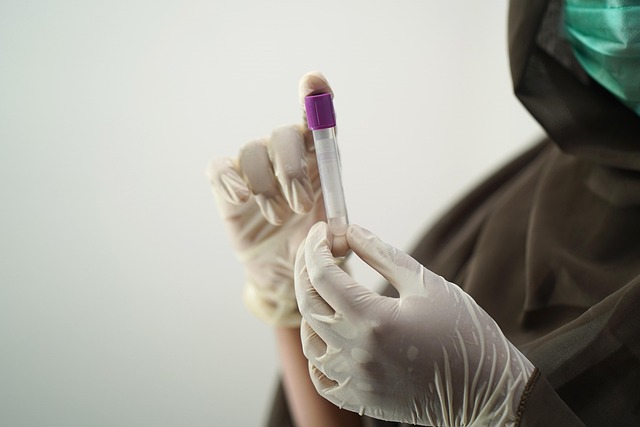The Standard Liver Blood Test (SLBT) in the UK detects vitamin B12 deficiency, offering early identification for timely interventions to maintain liver health and prevent complications. Interpreted by healthcare professionals, this test measures key markers like bilirubin within reference ranges (140-900 pg/mL), crucial for detecting potential deficiencies.
“Vitamin B12 deficiency is a common yet often overlooked health issue, potentially leading to severe neurological and cardiovascular problems. This comprehensive guide delves into the crucial aspect of early detection through the Standard Liver Blood Test UK. We explore the indicators and symptoms that prompt such tests, offering insights into interpreting results effectively. Understanding Vitamin B12 Deficiency and its potential impact is the first step towards proactive health management.”
- Understanding Vitamin B12 Deficiency
- Standard Liver Blood Test UK: What to Expect
- Interpreting Results: Recognizing Deficiency
Understanding Vitamin B12 Deficiency

Vitamin B12 deficiency is a common but often overlooked health issue. It occurs when your body doesn’t have enough vitamin B12, which is essential for maintaining healthy nerve cells and producing DNA. Symptoms can include fatigue, weakness, memory loss, and tingling in the hands and feet. In the UK, the standard liver blood test (SLBT) is a crucial tool for detecting this deficiency. The SLBT measures the levels of various substances in your blood, including vitamin B12, to assess overall liver health and identify potential nutrient deficiencies. Early detection through this test can lead to timely interventions, such as dietary changes or supplements, to prevent further complications.
Standard Liver Blood Test UK: What to Expect

The Standard Liver Blood Test UK is a routine check that evaluates your liver’s health. It involves drawing a small sample of blood, usually from your arm, to analyse various components related to liver function. This test measures enzymes and proteins specific to the liver, such as alanine aminotransferase (ALT) and aspartate aminotransferase (AST). Elevated levels of these enzymes may indicate liver damage or inflammation.
During this procedure, healthcare professionals also assess bilirubin levels, a byproduct of red blood cell breakdown. Normal bilirubin levels are essential for a healthy liver. Additionally, the test checks for albumin and total protein counts, which play vital roles in various bodily functions. A comprehensive interpretation of these results by a medical expert can help detect potential issues, including vitamin B12 deficiency, as it may impact liver health.
Interpreting Results: Recognizing Deficiency

Interpreting your blood test results is a crucial step in understanding whether you have a vitamin B12 deficiency. The standard liver blood test, commonly used in the UK, provides valuable insights into your overall health and can indicate potential nutrient deficiencies. When it comes to B12, the reference range for serum levels typically varies between labs but generally falls between 140-900 pg/mL (picograms per millilitre). Levels below this range may suggest a deficiency.
If your result is outside the normal range, further investigation is necessary. A healthcare professional can help interpret the data and determine if the deficiency is mild, moderate, or severe. They might recommend additional tests to confirm the diagnosis and rule out other potential causes. Recognising a B12 deficiency early on is vital as it can lead to serious health complications if left untreated.
A Vitamin B12 deficiency can often be detected through a standard liver blood test UK, making it an essential tool for identifying this subtle yet significant health issue. By understanding the symptoms and interpreting the test results accurately, individuals can take proactive measures to manage their B12 levels and overall well-being. Regular monitoring, especially for at-risk groups, is key to ensuring optimal health.
